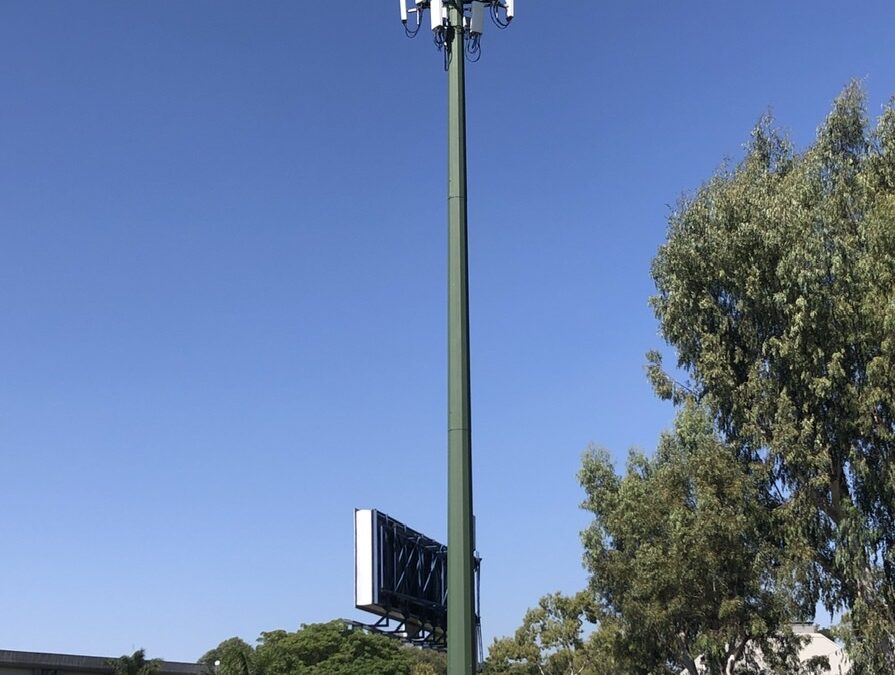In the fast-paced world of global communication, Africa stands out as a promising frontier for forward-looking investors. Across African nations today, the telecommunications industry is booming. Fueled by both public and private investment, the market is increasingly capturing the attention of both domestic and foreign investors.
In Nigeria alone, more than $70 billion has been invested in telecommunications since 2001, a report by The Premium Times suggests. One company that has been extremely active across Africa is Huawei, which today dominates the continent’s telecom sector, providing both telecom services and infrastructure in several African nations.
Rapidly growing telecommunications industry
Africa’s rapidly growing telecommunications industry is boosting economic growth as wireless technologies skyrocket in popularity. Valued at circa $63.17 billion in 2024 and forecast to exceed $82.34 billion by 2029, the African telecom industry’s growth is closely linked to the continent’s young population. A prime example is Nigeria, where a staggering 60% of the population is under 25, its tech-savvy customer audience hungry for online connections, driving huge growth throughout the country’s telecom industry.
In numerous African countries today, digital technology is transforming lives, boosting incomes, and spurring innovation. In remote African villages, mobile phones enable farmers to check market prices before selling their crops to middlemen, as well as enabling market traders to accept payment via mobile. According to a study by MIT, simply by gaining access to M-Pesa, a mobile money service, 2% of Kenyan households were able to lift themselves out of poverty between 2008 and 2014.
Reaching new milestones
Tech and telecommunications companies are reaching new milestones in Africa, capitalizing on renewed interest from international investors keen to finance the roll-out of data centers, propel fiber connectivity in new regions, fund the creation of new infrastructure, and deploy new networks in key markets.
According to experts, a few select markets are currently underpinning the bulk of investment and transactions across Africa, with Nigeria, Kenya, and South Africa ranking as the most active. Ethiopia, meanwhile, is just launching its telecom market, with a flurry of new investors setting their sights on the country.
Byron Clatterbuck, the CEO of the South African submarine cable and fiber company SEACOM, predicts that broadband technology will continue to gather momentum in many African markets where fiber infrastructure is still developing. Clatterbuck points out that numerous opportunities exist across the spectrum in all geographies. Although some countries have leapt ahead with clear and open investment strategies while others lag behind, Byron Clatterbuck suggests that opportunities exist along all stages of development.
Driving innovation
As Africa experiences a rapid digital transformation and economic expansion, the telecommunications industry is playing a pivotal role in connecting people and businesses, driving innovation, and shaping the future of the African continent. Growth in the African telecom sector has been critical to the continent’s economic and social advancement, with demand for mobile network services soaring due to a growing population, expanded Internet access, and ever-increasing smartphone penetration. In response, telecom companies are striving to extend coverage and improve their networks to ensure dependable connectivity, fulfilling the increased expectations of businesses and consumers. With new players entering the market at a dizzying pace, telecom companies are coming under huge pressure to provide high-speed seamless connectivity, investing in modern infrastructure such as 5G technologies and fiber optic networks.
As in other parts of the world, in Africa digitization has taken over, transforming entire industries and creating new opportunities. Digital solutions have paved the way for efficiency and innovation across various sectors, including healthcare, agriculture, fintech, and ecommerce. Telecom companies continue to play a critical role in this transformation as more Africans adopt this game-changing technology, enabling individuals and businesses to take advantage of digital tools and reach new markets. Digitization is fueling economic progress at lightning speed by providing dependable Internet connectivity alongside cutting-edge communication services.
Reliable, high-speed Internet connections
Although West Africa has yet to upgrade to 4G and 5G Internet services, making the leap will pave the way for high-performance remote working for West African SMEs, enabling them to operate their businesses more smoothly. Reliable, high-speed Internet connections will allow West African SMEs to leverage tools such as online banking and fintech, and offer customers a host of new services, potentially sparking a boom in ecommerce. Strong and stable Internet connections and cloud computing could also help West African Internet users to experience smooth conference calls via Zoom, or enjoy apps offering virtual reality features, presenting opportunities for global collaborations and opportunities.
Africa now boasts an impressively high mobile penetration rate, effectively leapfrogging traditional infrastructure as mobile technology expands digital access. Telecom companies are striving to bridge the digital divide, ensuring that even communities in the most remote regions can access digital services. The African telecommunications market is not only shaping the continent’s own digital future, but also influencing the global telecom landscape. Africa’s commitment to digital innovation, inclusion, and infrastructure development has positioned it as a key player in the global connectivity arena.

